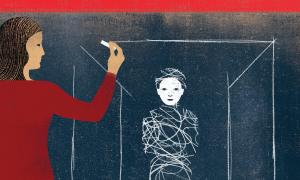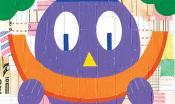A couple of nights ago, I took my daughter to Chuck-E-Cheese, a tradition of ours when her other mother is out of town. We play skee-ball to win long rows of tickets that we later exchange for plastic toys and stickers. We play — it’s our way of lessening how much we miss the Mom who’s not with us. This particular evening something besides the blinking lights of games caught my eye, though.


